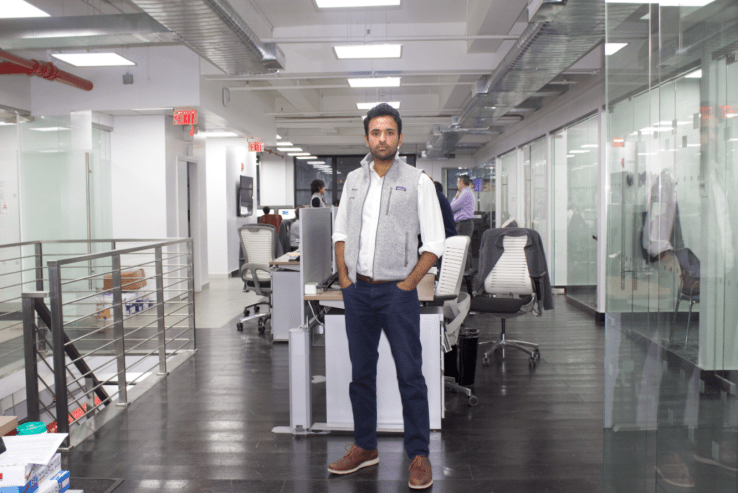Roivant, which creates companies around abandoned drugs, just raised $1.1 billion from SoftBank

Roivant Sciences, a three-year-old, Basel, Switzerland-based company aiming to one day be a giant holding company for dozens of independent biopharmaceutical companies, has raised $1.1 billion in equity led by the SoftBank Vision Fund — making it the latest in a string of enormous bets by SoftBank, and putting the young outfit more squarely on the radar of the tech world.
Roivant focuses on developing and commercializing therapies by creating subsidiaries, all of which involve the word “vant.” To date, these include Axovant Sciences, which is focused on neurology; Myovant Sciences, which is focused on women’s health and endocrine diseases; Dermavant Sciences, which is focused on dermatology; Enzyvant Sciences, which is focused on rare diseases; and Urovant Sciences, focused on urology.
Roivant also is creating a new tech-focused subsidiary for the first time, called Datavant, an AI-driven initiative that’s aiming to unlock insights in healthcare data sets by improving the design of clinical trials, creating virtual trials between similar drugs using pooled placebo groups and developing new molecular targets to pursue for any given drug.
SoftBank’s investment is in Roivant only — not its subsidiaries.
Roivant was founded by Vivek Ramaswamy, a biology major at Harvard who went on to nab his law degree from Yale before going to work as a hedge fund analyst, where he says he noticed pharmaceutical firms abandoning promising drugs for various reasons having nothing to do with their efficacy.
Seeing an opportunity to complete the development of some of these abandoned drug candidates and get them to market quickly, Ramaswamy struck out on his own in 2014.
One of his first moves was to acquire an Alzheimer’s pill from GlaxoSmithKline as it was dialing down its neuroscience research, forming Axovant around it. It is still awaiting Phase 3 results from that pill, now named intepirdine. Nevertheless, based on promising early results, Roivant took the company public in 2015, and it was the biggest biotech IPO of the year, raising $360 million. (Its shares, which opened at $15, currently trade at $23.)
In 2016, Roivant also took public Myovant Sciences and it, too, was the biggest biotech IPO of the year. The drug candidate around which the company is centered is called relugolix; it aims to treat endometriosis and uterine fibroids and reportedly “aced” a mid-stage trial that ended in the spring.
Roivant’s giant new investment includes participation from earlier backers; these include the hedge fund Viking Global Investors, which last year provided Roivant with an undisclosed amount of funding that Ramaswamy described to us earlier this year as “one of the largest, if not the largest, private financing of a biotech company in history.”
Roivant also raised earlier funding from the hedge fund QVT Financial in New York, where Ramaswamy once worked, and Dexcel Pharma, an Israeli firm.
The investment, while jaw-dropping, is a drop in the bucket for SoftBank, which is busily working to close its Vision Fund with $100 billion and aggressively committing its capital in the meantime. For example, according to the WSJ, the SoftBank Vision Fund is also closing a $1 billion investment in the online sports retail company Fanatics.
SoftBank’s many other recent investments include Plenty, a startup specializing in vertical farming that raised $200 million from the Vision Fund last month; Brain Corp, an AI company working on tech for self-driving robots that announced a $114 million investment from the fund on the same day; Improbable, a virtual reality startup that raised $500 million in May from the fund; the cancer detection company Guardant Health, which raised $360 million from the fund in May; and the self-driving car startup Nauto, which raised $159 million in June in a round led by the Vision Fund and GM.
Earlier this year, this editor hosted Ramaswamy at an intimate San Francisco event where we talked more about Roivant, including how it pays for the drug candidates it buys and where it finds the teams who lead its subsidiaries. You can check out that sit-down below to learn more.